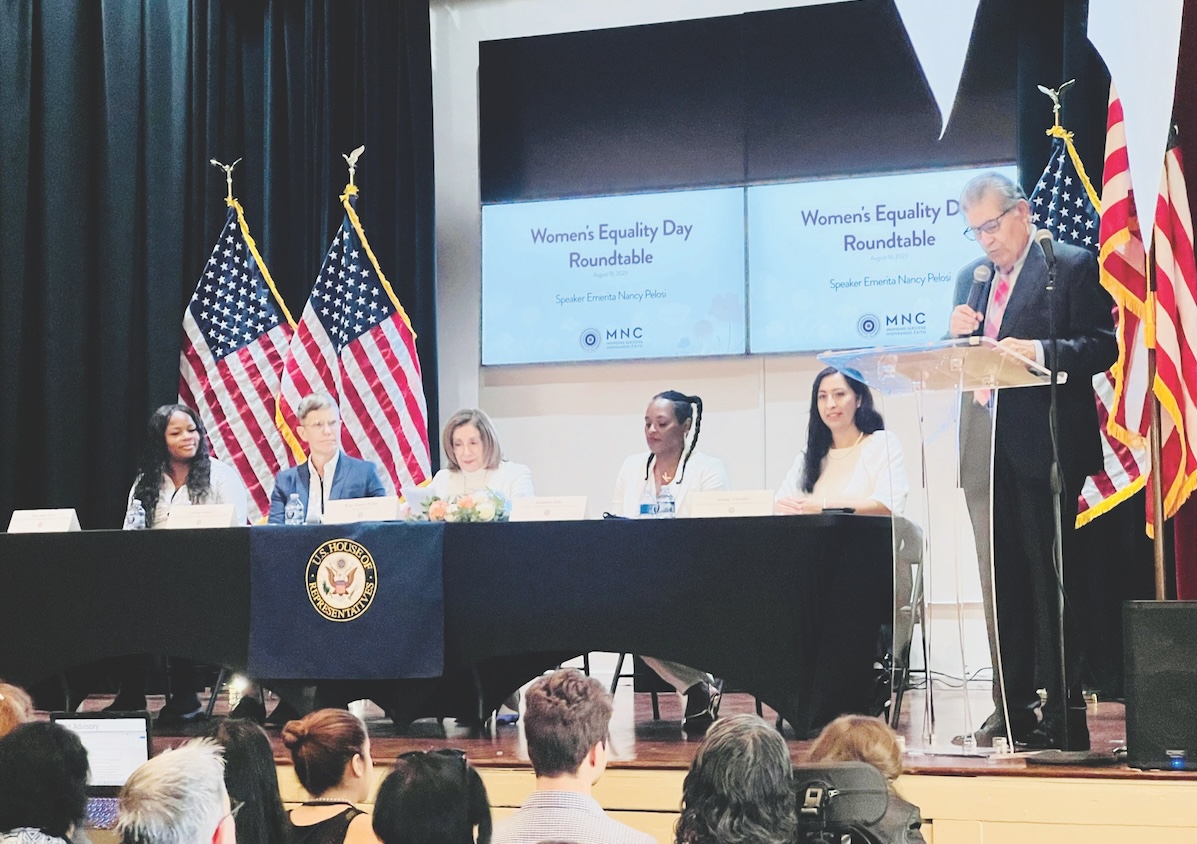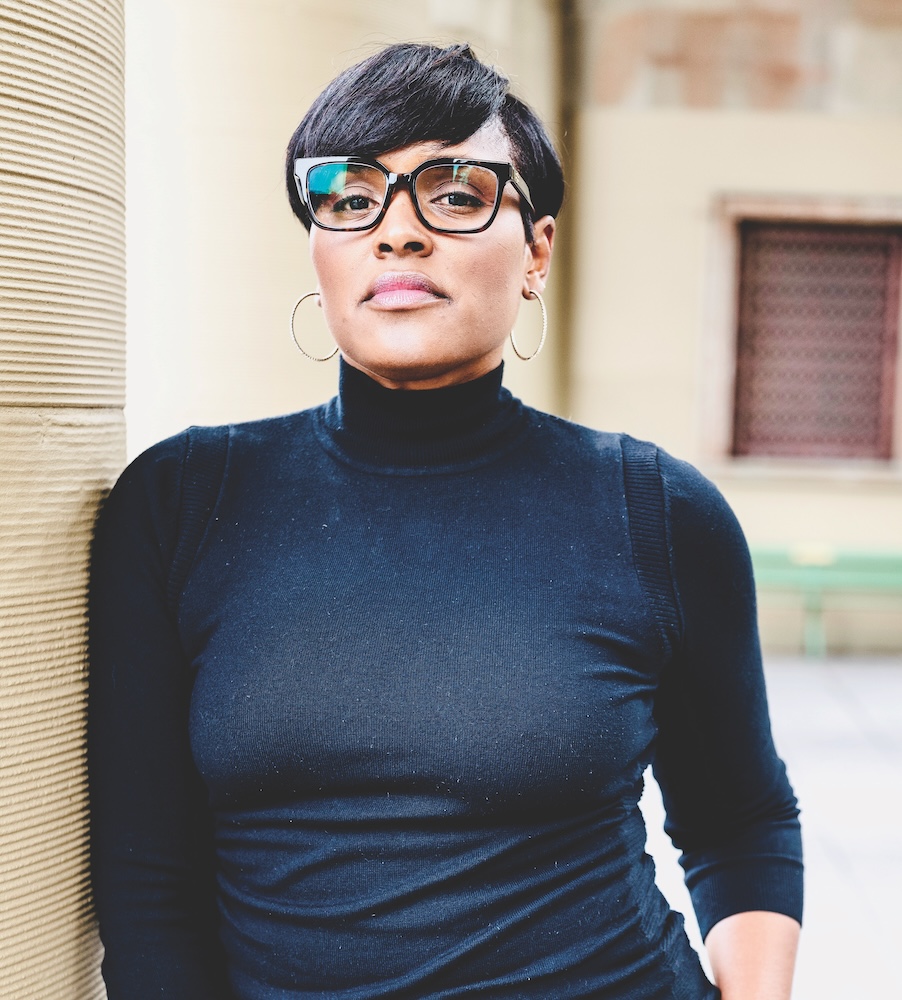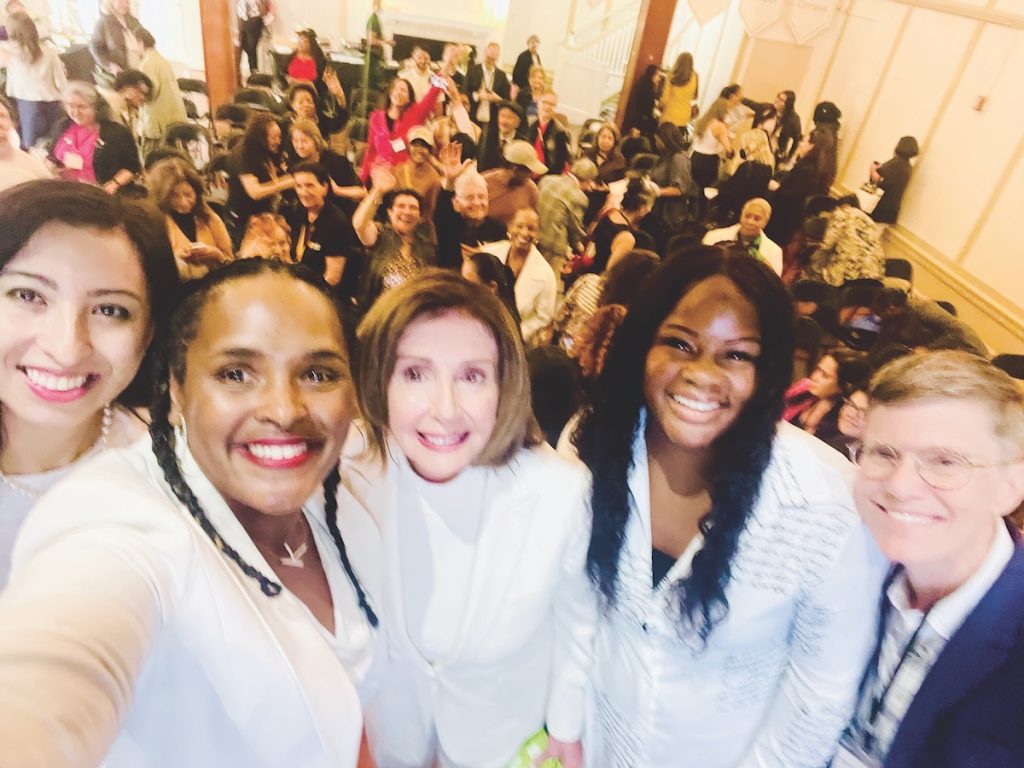Kimberly Ellis: Empowering Women and Girls

Kimberly Ellis’s political activism flame was lit in the 3rd grade when she learned about Shirley Chisholm, the first Black woman elected to Congress – a picture of whom proudly hangs on the wall of her current office. This early and powerful inspiration led her to pursue leadership roles throughout her education and eventually into a career focused on women’s empowerment and social change.
A prominent advocate for women’s equality and social justice, Ellis currently serves as the Director of the Department on the Status of Women for the City and County of San Francisco, where she works to advance gender equity across various sectors including nonprofit organizations, government, and philanthropy.
With a background in law and a passion for politics, and a recognition of the interconnectedness of various challenges facing society today, Ellis is known for her intersectional approach to social issues, which for many years was focused on her work with Emerge America and eventually her leadership of Emerge California – a six-month intensive training program for Democratic women planning to run for elected office. Her work spans from grassroots organizing to policy making, always with a focus on creating a more equitable world for women and girls. Her vision for philanthropy and social change emphasizes collaboration, innovation, and the unique leadership qualities that women bring to solving complex societal problems.

Q: You’ve toggled back and forth in your professional life between politics and nonprofit and philanthropic endeavors. Can you talk about why you came to believe that giving back matters, and what made you feel the nonprofit world provided an important safety net for our society?
Kimberly Ellis: For me, the focus of my professional career, whether in nonprofit, government, or philanthropy, has really centered around women’s equality. I know that when women are supported at the same rates as men, when women are given equal opportunities, when women are invested in at equal rates, and when women are in positions of leadership equal to men, agendas change, conversations change, outcomes change, lives change, and our society changes.
Using my time, talent, and energies to bring about a more equitable world for women and girls has been a really important part of my purpose. I know that all sectors, whether nonprofit, business, philanthropy, or government, have a role to play in bringing about a fairer and more equitable world for everyone, including and especially women and girls. For me, there was less focus on which sector or industry I was working in and more focus on whether that particular entity at that moment in time was as committed to gender equity as I was.
Q: Can you explain the difference between gender equity and gender equality?
A: Equality is everyone being given an equal opportunity or shot at something at the same rates. Equity is a process whereby we understand that there has not been a level playing field for anyone other than white, heteronormative, able-bodied men. It adjusts accordingly when putting policies or systems in place to bring up to a level playing field those that have been historically disinvested in, marginalized, and oppressed to a place where they can be on an equal footing.
Q: As a parent, how do you approach conversations with your children about gender equality and the importance of giving back?
A: It has been an ongoing conversation since both of my kids were in utero, literally. I’ve been talking about the importance of equity, justice, and fairness from the very beginning. I think it’s really important to start those conversations early with our kids.
This is a really different world that our kids are growing up in today than when we Gen Xers grew up. They have much more information at their fingertips than we ever did, but they also have equally much more disinformation. There’s a constant, almost daily battle of trying to keep hateful, misogynistic, racist, phobic, xenophobic, antisemitic rhetoric and violent rhetoric from forming in their consciousness.
It’s really important, now more than ever, to have open dialogues and constant conversations with our kids – different conversations for our girls than we do with our boys, and in some cases the same conversation. I’m having constant conversations about things like voting and the importance of civic engagement.

Q: How did you develop your interest in social justice and politics?
A: Interestingly, I don’t recall any conversations with my family growing up about these topics. It was in the third grade when I had to give a speech on my political hero that I learned about Shirley Chisholm and fell in love with the idea of political activism. Learning about how she chose to use her voice and her power to reach back and help others made me catch the political bug. I decided that I wanted to do everything I could to be like Shirley when I grew up.
From there, I ran for student rep in third grade and continued along that path, being active in student government throughout my education. After college, I struggled to find a way to continue with activism in the real world, which led me to law school. Eventually, I happened upon an organization called Emerge California, which changed my life.
Q: Do you think local governments work closely enough with the philanthropic sector and community foundations to engage in public-private partnerships or to search for solutions together?

A: I think that there certainly have been collaborations in the past, but with the ongoing impacts of COVID and the unraveling of our social safety net across the board, there is a need for even more collaboration and partnership to happen. The way it had been done in the past was often in silos and somewhat haphazard. What we need now is a more concerted effort to really connect the dots, to utilize the bully pulpit of government coupled with the entrepreneurial ethos of philanthropy to devise innovative solutions for this new terrain we find ourselves in.
Q: What do you see as the biggest issue facing the Bay Area?
A: I think it’s affordable housing. Too many people cannot afford to live where they work, or even an hour away from where they work. Many people can’t afford to live within this state anymore. We need to have an honest conversation with ourselves about what that means, not just for us but for future generations, for the health of our cities, our state, and our planet.
Being able to afford a roof over your head, food in your refrigerator, clothes on your back, funds for transportation, healthcare – these are things that as a society, we should say are human rights. If they are human rights, then what do we need to do to ensure that everyone has access to those things? We have the money, we have the technology. What’s often missing is the political courage to make the decisions that need to be made, thinking about what’s most important instead of how it will impact reelection chances.
Q: What would you say to donors across the Bay Area about why it’s important to give at whatever level makes sense for them?
A: One of my mentors once said about political giving, but I think it’s true about giving in general, that this is a game of multiples. We need to understand the ripple effect that is created when there is a multitude of individuals working that then become a collective. Giving is in our DNA as humans; we are givers. This is a country of givers. Almost 90% of people in this country give philanthropically in one way or another.
For donors to understand that investing in and giving to causes that are bigger than ourselves doesn’t just help that cause or those people – it helps all of us, including them. Everything is connected. We’re at a crossroads in this country and really in the world where we have to decide how we are going to move forward. Being able to focus and come together around these important issues is going to be critical toward solving the big issues of the day and saving our planet.
Everyone has skin in the game. Everyone has to invest at whatever level is meaningful to them. It doesn’t matter how much you invest, but just that you invest. We need to encourage givers to grab a couple of friends to give in whatever ways they can – time, talent, or treasure – towards the collective. I believe that women will lead that charge, and because of that, I believe we will be successful.
Q: Any final thoughts on philanthropy and its role in shaping the future?
A: I would just offer that philanthropy, different from government and often different from corporations, has a lot more flexibility and ability to be nimble and to move in ways that bureaucratic systems cannot. There really is an opportunity for philanthropy to lead the way with respect to this new society, this new paradigm that we are co-creating, to really help shape the future. They should seize that moment.
